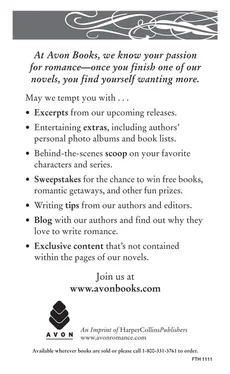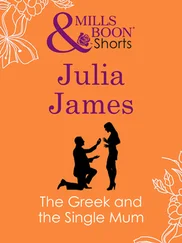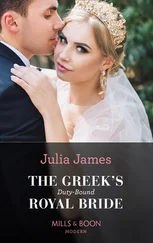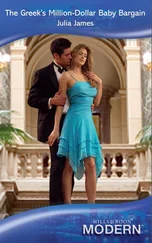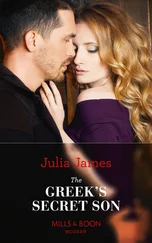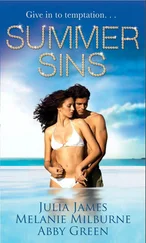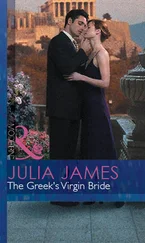Julia James - The Lady Most Willing
Здесь есть возможность читать онлайн «Julia James - The Lady Most Willing» весь текст электронной книги совершенно бесплатно (целиком полную версию без сокращений). В некоторых случаях можно слушать аудио, скачать через торрент в формате fb2 и присутствует краткое содержание. Жанр: Старинная литература, на английском языке. Описание произведения, (предисловие) а так же отзывы посетителей доступны на портале библиотеки ЛибКат.
- Название:The Lady Most Willing
- Автор:
- Жанр:
- Год:неизвестен
- ISBN:нет данных
- Рейтинг книги:4 / 5. Голосов: 1
-
Избранное:Добавить в избранное
- Отзывы:
-
Ваша оценка:
- 80
- 1
- 2
- 3
- 4
- 5
The Lady Most Willing: краткое содержание, описание и аннотация
Предлагаем к чтению аннотацию, описание, краткое содержание или предисловие (зависит от того, что написал сам автор книги «The Lady Most Willing»). Если вы не нашли необходимую информацию о книге — напишите в комментариях, мы постараемся отыскать её.
The Lady Most Willing — читать онлайн бесплатно полную книгу (весь текст) целиком
Ниже представлен текст книги, разбитый по страницам. Система сохранения места последней прочитанной страницы, позволяет с удобством читать онлайн бесплатно книгу «The Lady Most Willing», без необходимости каждый раз заново искать на чём Вы остановились. Поставьте закладку, и сможете в любой момент перейти на страницу, на которой закончили чтение.
Интервал:
Закладка:
Marilla stared at her, her jaw dropped.
Fiona pulled the boots on, and then the gloves. She probably looked like an ancient crone wearing a bear costume inside out. But when she glanced at the mirror, she didn’t even see her own reflection: instead, she saw Oakley’s blue eyes. They were an extraordinary color, the color of the sky on a summer day, when one lay on one’s back in a meadow.
“Good-bye,” she said, walking out and closing the door behind her.
“I didn’t mean it!” Marilla called shrilly. Fiona pretended that she hadn’t heard, and kept walking, down the stairs, through the baize door, and into the kitchen.
She stopped only to grab a bag of apples and a bottle of wine from the kitchen staff. The apples were for the horses, and the wine was for her. She’d never drunk to excess before. Ladies never became inebriated. But she wasn’t a lady. She was ruined, ruined, ruined .
The blowing snow was like a slap to her face, like a scream turned into material fact. Walking away from the warmth of the kitchen and into the howling wind felt like a punishment, but she didn’t mind.
She couldn’t bear to sleep in the room with her sister that night. Nor to be down the corridor from a man who actually thought—howsoever briefly—that she was worth making his countess. Who had kissed her like . . . like that. And then regarded her with no expression at all in his eyes, as if she were no more than a strange, distasteful woman, who happened to be seated beside him at supper.
She bent her head down and kept her hand tight on the cord. Luckily, the wind was scouring the courtyard and driving the snow around the other side, so drifts of snow hadn’t been able to settle the way they would when the wind died down. A wooden wall loomed out of the moving wall of snow before her so suddenly that she bumped into the door.
A second later she was tumbling into the warm, dim stable. “Who’s there?” came a cracked voice. And then, “Ye’re a woman!”
She nodded, throwing back the hood on her cape and shaking herself to remove some of the snow. “Mr. Garvie said you could return to the castle for the night if you wished. I shall remain just long enough to look for my reticule in the carriage, and then I’ll follow you.”
“I ain’t leaving any woman alone with my horses,” the old man cried.
“Away wit’ ye!” she barked, her voice emerging in a perfect Scottish burr.
She reached out and took the lantern from his hand. “Get off with ye, then,” she commanded, with a jerk of her head.
“What are ye doing here?” he demanded. “This ain’t no place for ladies. You won’t have a bit of yer reputation left.”
That did it. “I’m not a lady,” she shrieked. “I’m Fiona Chisholm.” She saw his eyes widen and felt a primitive surge of pleasure at the fact that he recognized her by name. “I’ve got no reputation, and I’ll do whatever in the bloody hell I choose to do. I might stay here all night. You have got no say in it!”
“Ye’re off yer onion,” the man grumbled, moving backward. “There’s no call to scream at me like a banshee. Ye be careful with that lamp, you hear? I don’t want to find my stable on fire.”
“I’ll be careful.”
The moment the door closed behind him, Fiona heaved a sob. But she refused to let herself be dragged into that morass of self-pity. Never again. Instead, she walked down the center aisle of the tiny stable.
The four horses that had drawn the Duke of Bretton’s carriage put their heads over their stalls’ doors and nickered at her when she began offering apples. They were beautiful, with soft noses and shining eyes.
After the four of them came a pretty mare, and finally a gelding who took his apple carefully from her flattened hand, his lips curling as if with disdain.
“They should call you Byron,” she told him, stroking the star on his forehead. His black ears flicked back and forth, and then, as if in sympathy, he rested his chin on her shoulder. His apple-breath was sweet.
“You just want another apple,” Fiona said, choking back tears. She gave him one and realized she’d come to the end of the horse stalls.
The Duke of Bretton’s carriage had been pulled in through wide doors at the opposite end of the stable. It was so large that the shining black end of the vehicle loomed in the dusky light. She walked around, opened the door, and listlessly held up the lamp, but no reticule was visible.
Another row of stalls, mostly empty, lay opposite those she had just visited. The last, back where she had started, contained an ancient pony. The pony lumbered to her feet as Fiona approached, her belly almost as round as she was long.
A tear slid down Fiona’s cheek, because the self-pity she had sworn not to allow herself wasn’t easily vanquished. She would never have a child, and so never have a pony . . . Still, she made herself stop after one quivering sob. She slipped into the stall with the pony, who ate an apple and promptly lay down in the straw once again.
She hung the lantern safely from a hook on the wall, and then removed her cloak and dropped it in the straw. Finally she sat down and, leaning against the pony’s fat tummy, pulled the cork from her bottle of wine.
The wine was rich and fruity, like the earth in the springtime, if dirt was good to eat. She took another swig. It was peppery too, like . . . like pepper. She peered at the label. It was quite dim in the stable even with the lantern, but she could make out that the wine had come from Italy.
As she upended the bottle again, it came to her: she needn’t stay in Scotland with a father who didn’t care very much for her, and a sister who cared not at all. She had money. No—she had a fortune . She could leave Scotland.
She slowly put down the bottle, the happiness caused by this epiphany exploding in her heart. She would go to Italy and travel to the vineyards. She would buy a little house in the countryside . . . or in Venice . . . or Rome. She needn’t even stay in Italy; she would travel wherever she wished. She need never see an English earl again in her life.
Idea after idea came to her: she would like to see the Parthenon, and a camel, though she had the vague sense they weren’t to be found together. A camel had come through the village in a fair when she was a child. She had never forgotten his long, curled eyelashes, and the way he chewed, thoughtfully, as if he were solving the world’s problems and just not bothering to share the solutions.
Lying there, drinking as she considered the adventures she would have, she began to feel chilled. A bit of a search turned up some horse blankets, and she made a nest with these. Then she curled up and pulled her cloak over herself, fur side down, and resumed her reverie. Only when the bottle was nearly half gone did she come to another epiphany.
She could take a lover. An Italian lover. A man with loopy black curls and golden skin, as far from a pallid, blond earl as could be imagined. “I don’t have any reputation anyway,” she told the pony. “Everybody thinks I did all . . . all that with Dugald. I didn’t. But that doesn’t mean I can’t do as I wish. Maybe I’ll have a child after all.”
The pony twitched her ears encouragingly.
“I will have a child,” Fiona decided, taking another drink. “I’ll tell people I’m a widow. I have more than enough money for the two of us. Who needs Scotland anyway? My father won’t even notice I’m gone.”
Her tiresome conscience had just reminded her that her father likely would notice if his elder daughter never returned, when she became aware of a banging noise coming from the wall next to her stall.
“What’s that?” she asked the pony, who didn’t seem to have an answer. Fiona balled up her fist and thumped back on the wall.
Читать дальшеИнтервал:
Закладка:
Похожие книги на «The Lady Most Willing»
Представляем Вашему вниманию похожие книги на «The Lady Most Willing» списком для выбора. Мы отобрали схожую по названию и смыслу литературу в надежде предоставить читателям больше вариантов отыскать новые, интересные, ещё непрочитанные произведения.
Обсуждение, отзывы о книге «The Lady Most Willing» и просто собственные мнения читателей. Оставьте ваши комментарии, напишите, что Вы думаете о произведении, его смысле или главных героях. Укажите что конкретно понравилось, а что нет, и почему Вы так считаете.
